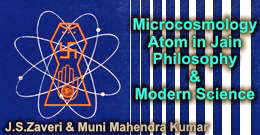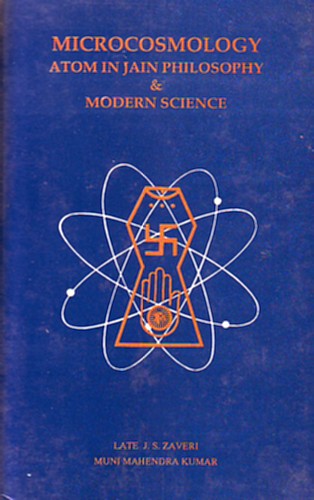
Paramanu
The Ultimate Indivisible Unit Of Physical Existence
Definitions
Paramanu can neither be created nor destroyed. It is eternal, i.e., it existed in the past, exists in the present and will continue to exist in the future. It is the permanent basis of the physical existence. The entire physical existence is composed of these ultimate atoms.
The canonical literature, in general, and the Bhagavati Sutra in particular, defines paramanu in various ways from different angles. It is the basis (ultimate "building blocks") of physical universe. It is indivisible, indestructible, impenetrable, incombustible and imperceptible to sense-organs. It cannot be split or destroyed by any means whatsoever. The sharpest instrument cannot divide it into two and the highest temperature cannot destroy it by burning. It does not become wet even if it is drenched by the deluge clouds (puskaravarta mahamegha). It will not lose its existence or identity even if it enters a drop of water or a whirlpool of water. [Bhag. Sut., 20/6/38.]
Paramanu is a true point. It has no half-portion, no middle portion and no pradesa [Bhag. Sut 5/7/160]. It has no length, no breadth and no depth. It is dimensionless. It is the ultimate and eternal unit. [Tat. Raj. 5/25/1]
It is truly infinitesimal. Its beginning, the middle and the end are identical with the whole of itself [Tat. Sut. Sarva, 5-25]. Hence the sages have observed: 'That of which the start, the centre and the end is the same i.e. which itself is the beginning, itself is the middle and itself end that which (though possessed of sensual qualities) is net ^ rceptib'le (cognised by sensual perception.), and that which is indivisible is called paramanu [Tat. Sut. Sarva, 5/25].
Paramanu is defined by some other characteristics viz., its innate qualities thus [Panch. Sar., verse 81], "the substance which has a single taste, a single colour, one smell and two kinds of sparsa, which is the cause of sound but is not sound itself, which is not the same as skandhas (composite) though constituting them, is the paramanu".
 Jethalal S. Zaveri
Jethalal S. Zaveri
 Prof. Muni Mahendra Kumar
Prof. Muni Mahendra Kumar

